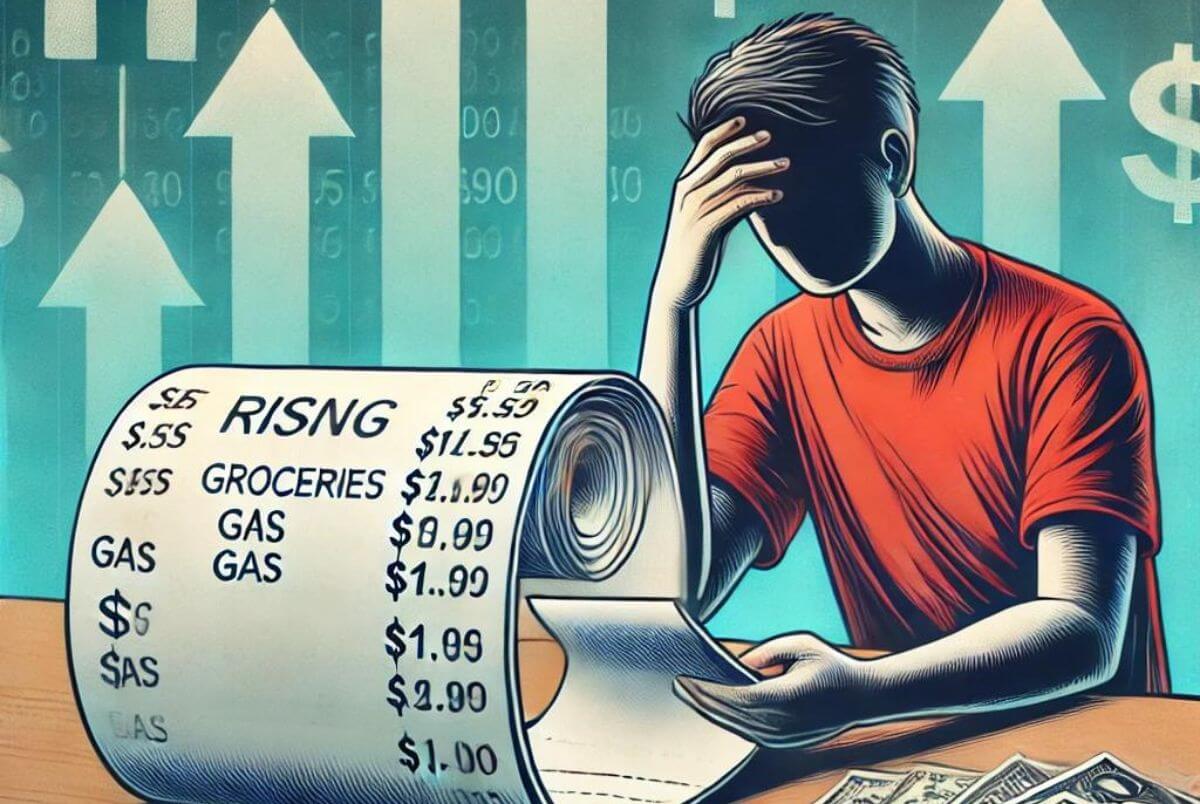By Peter St. Onge | AMAC Outside Contributor
A new poll finds that nearly 40% of Americans worry about paying the bills “most or all of the time”—which is even higher than during the 2008 financial crisis.
The poll—from CNN, of all places—found that 39% of Americans worry about paying the bills most or all of the time.
It’s up by one-third since the worst days of Bidenflation, and higher than the 37% during the 2008 crisis, when joblessness was running nearly 10%.
The reason, of course, is inflation.
Even CNN admits “consumers are still trying to catch up to the price spikes of the last few years.”
Still trying to catch up is an understatement. The gap between nominal wages and inflation-adjusted wages since 2021 is more than 20%. So, it looks like you’re making a lot more, but even accounting for official inflation, workers have lost thousands in income.
Of course, if official inflation is a lie, which seems likely, going by real-world prices from housing to restaurants and groceries, then workers have lost a lot more.
To illustrate, official inflation since COVID-19 is 21%, but fast-food menu prices—a standard finance proxy for true inflation—are up more than twice that, while housing costs have doubled since COVID-19, between rising house prices and rising mortgage rates.
If those real-world numbers are closer to true inflation, then workers have lost potentially thousands per month.
How are we above 2008 levels of distress when unemployment is under 5%? Easy: The inflation itself is pushing people to take on part-time jobs, and government statistics count part-time jobs the same as full-time jobs.
So, if you get laid off and take on a couple gigs—bag groceries Monday and Tuesday, sweep driveways Wednesday and Thursday, drive for Uber on the weekends—you are a one-man job miracle.
Indeed, CNN’s poll found that 35% of Americans—more than 1 in 3—say they have to take on part-time work to make ends meet.
That rises to 44% of blacks, 52% of Latinos, and nearly half of workers under age 45.
That explains why jobs are rising on paper, yet the actual number of employed Americans is plunging—down 600,000 in the past eight months alone.
It also explains why Americans are spending like double-digit unemployment is already here. The poll found more than two-thirds of Americans are cutting back on groceries, and nearly half are cutting back on driving to save gas. And 4 in 10 Americans are now using credit cards to pay for their necessities, like groceries and gas.
As always, this is hitting the youngest hardest, with nearly 80% of millennials and Gen Z unable to afford everyday expenses.
So, what’s next? I mentioned last week that most Americans think a recession has already begun, even as official numbers on prices and jobs gaslight their way to November.
A lot is riding on the next election. If the media manage to haul Kamala Harris over the finish line, we get Bidenomics double-time, all the way down. If, on the other hand, Donald Trump pulls through, going by 2016, we could get out of recession a lot faster, with a lot less pain.




